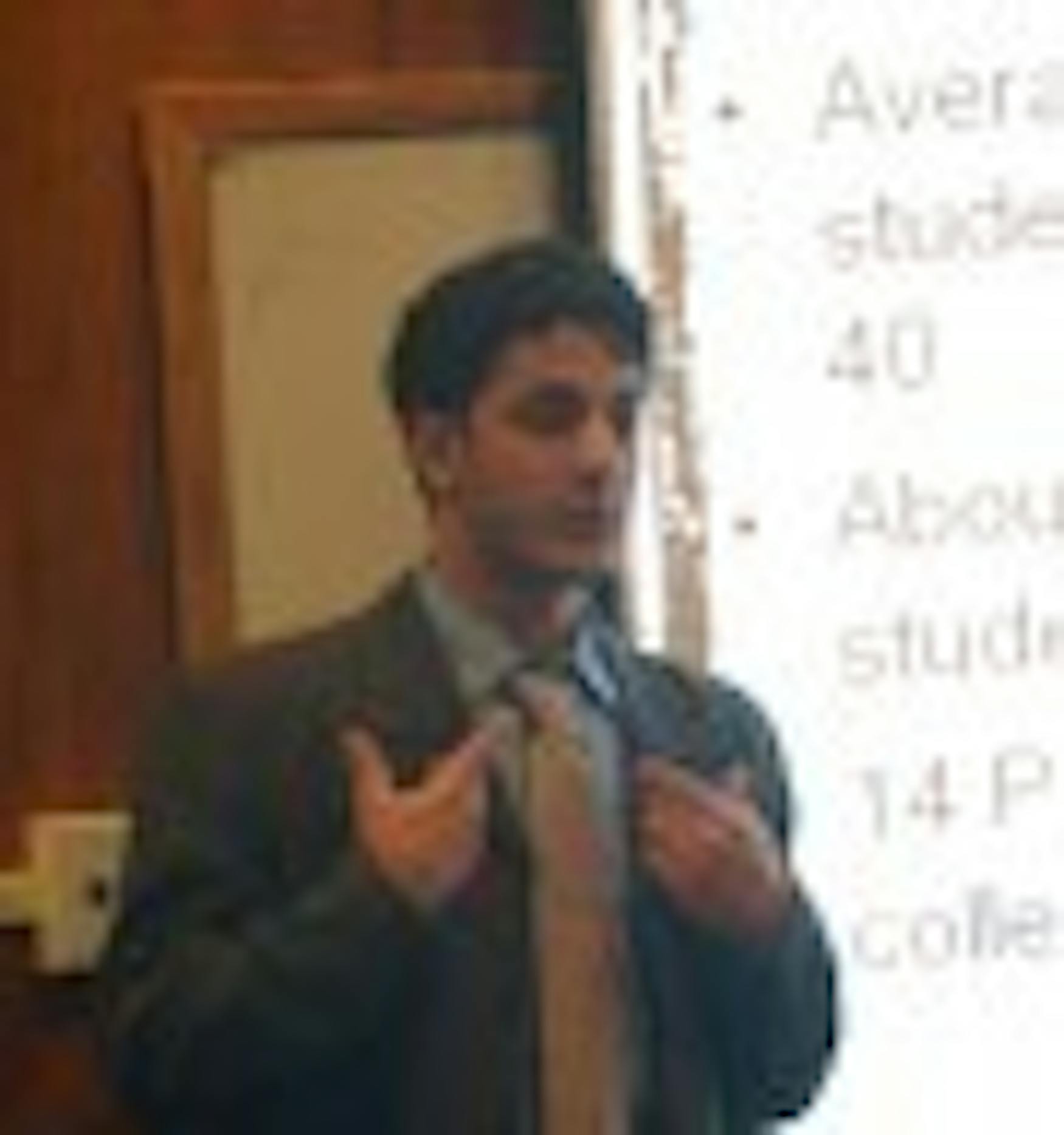Jewish Voice for Peace lecture endorses Boycott, Divestment and Sanctions
Last Thursday in Pearlman Hall, the Jewish Voice for Peace hosted Palestinian speakers Amer Shurrab and Mira Dabit as part of the We Divest! tour which promotes the boycott and divestment of as well as sanctions against the Teachers Insurance and Annuity Association-College Retirement Equities Fund-a financial service that includes a retirement system. According to the tour's website, the purpose of the movement is to stop TIAA-CREF from investing in large companies that profit from the Israeli occupation.
Dabit and Shurrab spoke about their personal perspectives as Palestinian students in the West Bank, which according to the speaker is currently under Israeli occupation. Dabit, who studied Psychology and Sociology at Birzeit University in the West Bank, said that her experience going to school in the West Bank "has not been an easy one."
Dabit said that the amount of Palestinian students studying in the West Bank has dropped from 35 percent of the total student population to about 15 students per school.
According to Dabit and Shurrab, many schools and universities have either been damaged or destroyed by Israeli artillery.
In addition, Dabit said "from the year 2000 to about the year 2005, there was a checkpoint. . It was a ditch in the ground for about 2 kilometers. . This checkpoint blocked the way of 38 villages." Dabit said that anyone who came to Ramallah had to walk the 2-kilometer checkpoint.
Dabit said that this checkpoint was replaced by others that were "army jeeps that literally blocked the way and stopped the cars from passing, and this actually took more time [for students to] come and go to the university."
"The army would often, when students were passing by in the street, basically find someone, stop them from a distance, ask them to show their bodies . and show that [they] have no weapons or explosives on [them]. . [They] are being watched by everyone passing by," Dabit said.
According to Dabit, who is currently a political and youth worker, activists in the area are often punished with detention for meeting to discuss political issues. "Students are so afraid of being arrested that they go into hiding," Dabit said.
According to Shurrab, who grew up in Gaza and attended Middlebury College, about 98 percent of Gazan children have suffered psychological trauma, such as post-traumatic stress disorder, as a result of attacks from Israeli soldiers.
"I've never experienced what freedom means," said Dabit. "I have no idea what it means to be a free person. I have no idea what it means to have rights as a human being."
Shurrab suggested joining the Boycott, Divest and Sanctions movement in order to support Palestinian students and residents of the West Bank.
"[BDS] is not about taking sides. It's not about supporting one or the other," said Shurrab. "It's about human rights. It's about equality."
JVP circulated a petition among the audience that was in support of the BDS movement against TIAA-CREF.
"[The event] was good because it was very personal," said Paraska Tolan '11. "I already know a lot [about the situation] and it's easy to go into broad generalizations but when it's about a personal story, it's a lot more effective."
"I feel that whenever something is very emotional based, it's hard to garner my support for it unless I gather other sources," said Caitlin Fay '12, who did not sign a petition in support of BDS.
"There was that initial shock and horror," Shurrab said about the audience's reception of his personal experiences in an interview with the Justice. "Everyone wanted to know what they can do. People wanted to get involved, to do something about it."
"That's why we're not only talking about our personal experiences," he later said. "We're offering something that people can actually do.



Please note All comments are eligible for publication in The Justice.